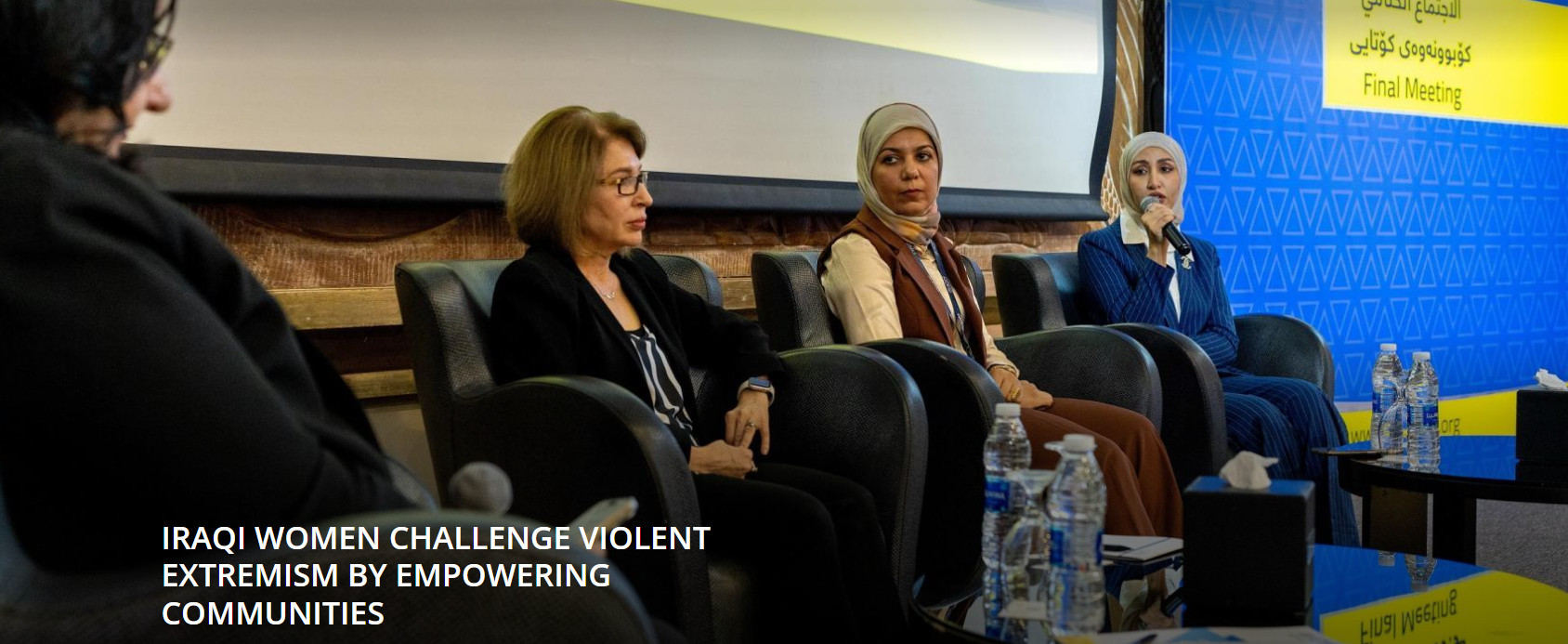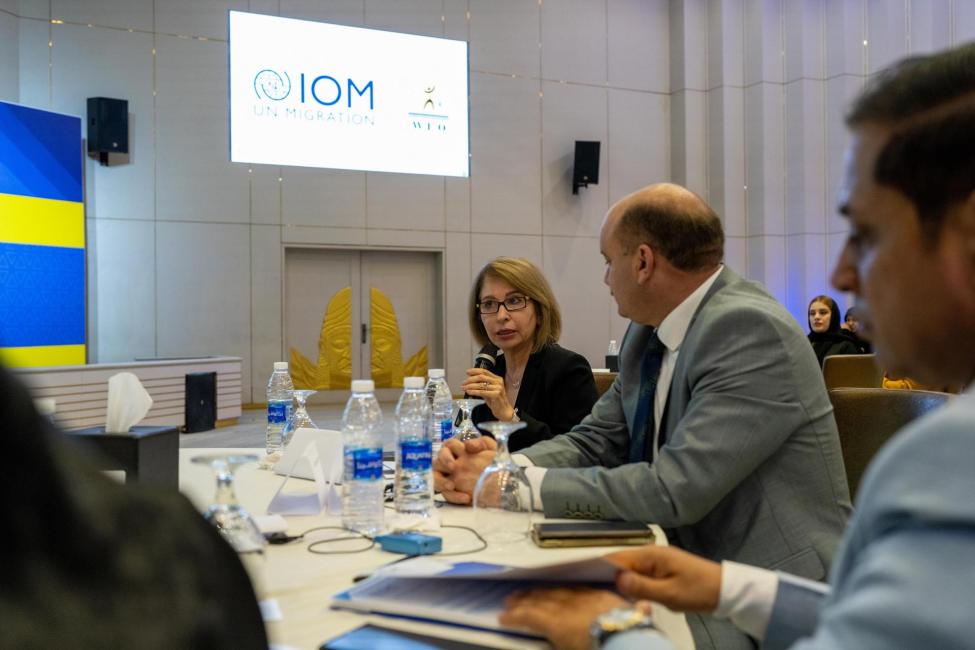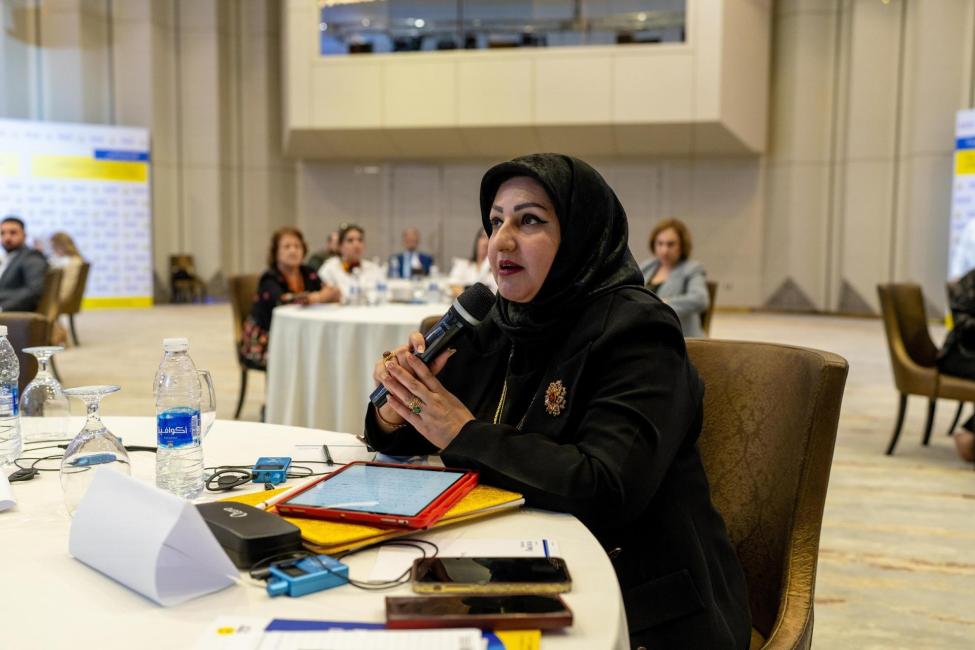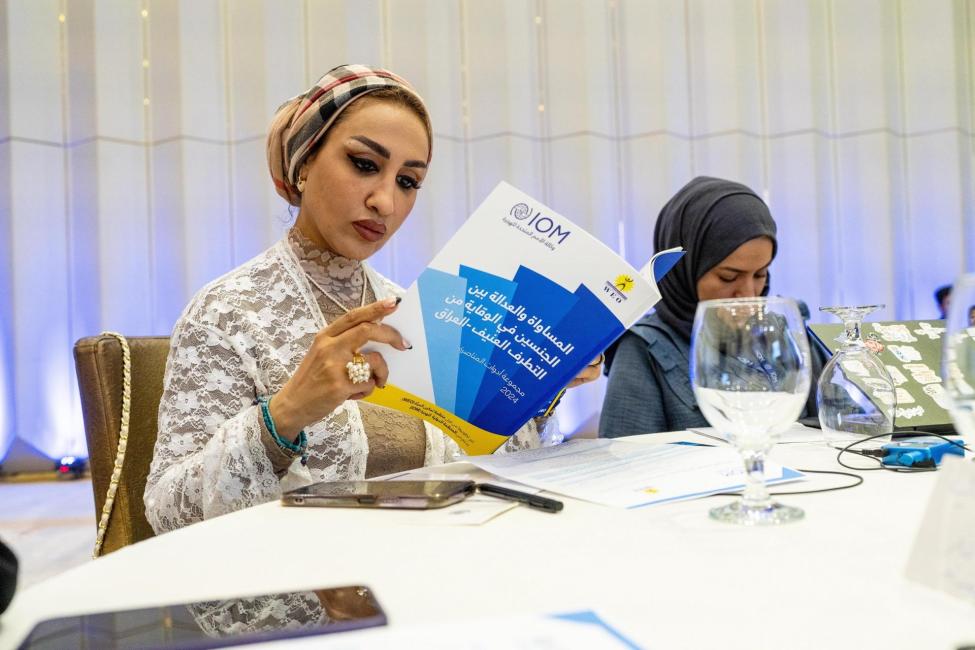Rafal Abdulateef | Senior Public Information Assistant
The inclusion of women in the discussions surrounding peace and security in Iraq marks a significant step toward building a more peaceful and resilient society. In a country that has endured years of conflict, women are increasingly stepping forward to advocate for their involvement in preventing violent extremism (PVE), offering unique perspectives shaped by their lived experiences. Despite significant challenges, such as security concerns and societal barriers, Iraqi women are working tirelessly to make their voices heard and to contribute to the creation of a safer and more inclusive nation.
To support these efforts and advocate for women’s engagement in PVE, the International Organization for Migration (IOM) partnered with Women Empowerment Organization (WEO) to carry out a national consultation project. This initiative involved 30 consultation sessions with nearly 300 Iraqi women across the country, gathering insights on violent extremism in their communities and their roles in prevention. To ensure broad participation and facilitate sensitive discussions, WEO partnered with three local civil society organizations (CSOs): Asuda Organization in the Kurdistan Region of Iraq, Al Firdaws Association in southern of Iraq, and Human Line Foundation in central Iraq.
As part of advocacy efforts, IOM and WEO held a final project event in Baghdad to launch a toolkit aimed at guiding stakeholders on how to involve women in the design and implementation of PVE policies and activities and encouraging its adoption by competent government and non-government institutions.
The event, that took place in August 2024, provided a platform for the voices of three women leaders who shared their stories. Despite coming from different backgrounds, they are united by the goal of empowering their communities and driving lasting change.
Suzan Aref, WEO co-founder, leads a session on the important role of women in preventing violent extremism at the final meeting of the National Consultation Project. © IOM 2024 / Rafal ABDULATEEF
“As a woman, I wanted to find ways to make our voices heard and focus on making women strong and self-reliant,” shared Suzan Aref, one of the founders of WEO, created to raise women's voices against discrimination.
Aref, a mother of three, returned to work in the humanitarian field after raising her children. She explained that the wars and conflicts in Iraq marginalized women, leaving them vulnerable to exploitation and extremism, particularly during Daesh’s occupation of certain provinces. "The role of women is important in countering extremism through their participation in decision-making, engaging them in awareness-raising and building the capacities of organizations so that we have effective advocacy tools.”
Aref believes civil society organizations play a significant role in influencing policymakers to implement laws and policies that protect women.
Enas Ismail outlines key strategies to involve women in preventing violent extremism during the National Consultation Project. Photo © IOM 2024 / Rafal ABDULATEEF
Women in the Iraqi government are also instrumental in shaping policies and advocating for greater equality across sectors. Despite societal barriers and underrepresentation, they continue to push for meaningful participation in governance structures.
“When women hold government positions, it positively impacts society,” said Enas Ismail, Director of the Women, Family and Child Affairs Department in the Basra local government.
The department regularly conducts educational workshops and advocacy campaigns to involve women in social, economic, and cultural programmes.“Our role is to empower women politically, socially, culturally and economically, whether in government or non-government institutions,” Ismail explained. She emphasized the importance of economic empowerment, noting that many women face financial struggles, which contributes to the pervasiveness of social issues like community tensions and family violence. By increasing women’s economic participation, she believes community and family resilience can be achieved.
Ismail also shared key recommendations for supporting Iraqi women, stressing the importance of women's roles in educating their communities on the dangers of drug abuse and electronic blackmail.
Taiba Al-Qaisi reads the advocacy toolkit booklet that was launched during the event. © IOM 2024 / Rafal ABDULATEEF
Civil society organizations in Iraq are critical in advocating for marginalized communities and shaping policies. They help build capacity, ensure accountability and promote social cohesion.
“Consultations and communication are the link between women and decision-makers, building trust and providing services,” said Taiba Al-Qaisi, head of the Taiba Relief and Development Organization, stressing the pivotal role of civil society in PVE by engaging young people in peacebuilding efforts.
Through advocacy tools, civil society organizations raise awareness, campaign for policy change and drive peacebuilding efforts. The advocacy toolkit created within the framework of the National Consultation Project is designed to amplify women’s voices and provide alternative pro-social narratives, reinforcing community resilience.
With support by the United States Agency of International Development (USAID) and the Government of Canada, the National Consultation Project highlights the critical role that women play in peacebuilding, not as passive beneficiaries but as active contributors to long-term peace efforts. Through continued advocacy and collaboration, Iraq can move closer to a future where women’s voices are integral to preventing violent extremism, promoting resilience, and fostering sustainable development.





